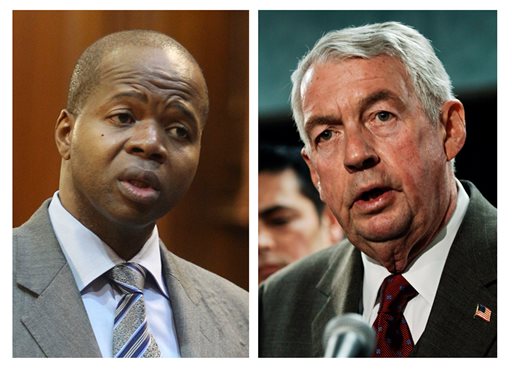DA Race in Brooklyn: New uniform for incumbent, playing field shifts
Thompson Plays 'Innovation' Card, But Will Turnout at Polls Stay Low ?

Brooklyn DA_Lieb.jpg
The race for Brooklyn district attorney, practically an election afterthought in years past, is steadily heating up.
A stream of attacks and harsh ads have piled up since longtime DA Charles “Joe” Hynes lost the Democratic primary to former federal prosecutor Ken Thompson and flipped sides to run on the GOP and conservative lines.
Thompson’s win marked the first time in a century that a sitting Brooklyn district attorney was ousted, and he would be the borough’s first black DA. Hynes initially said he would make the transition smooth, but he later decided to actively campaign. His name will appear on the GOP and conservative lines.